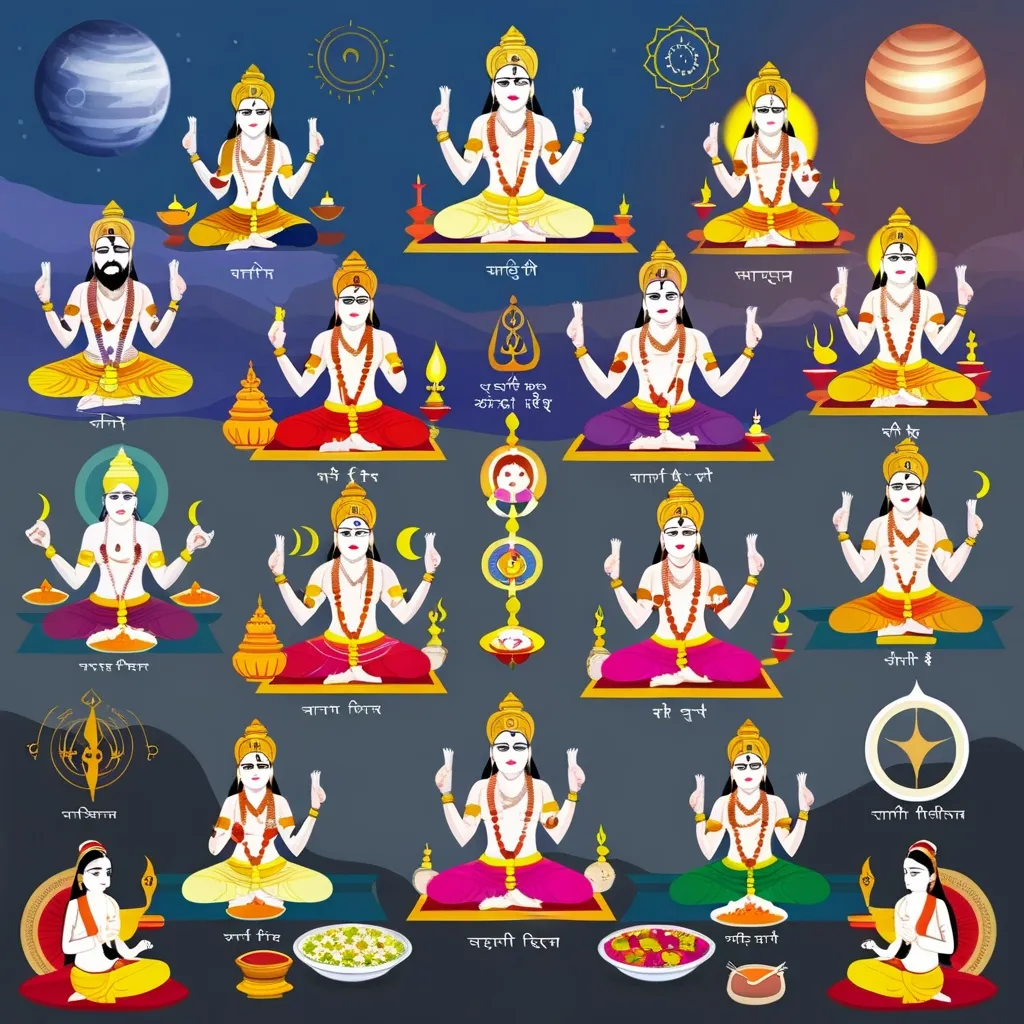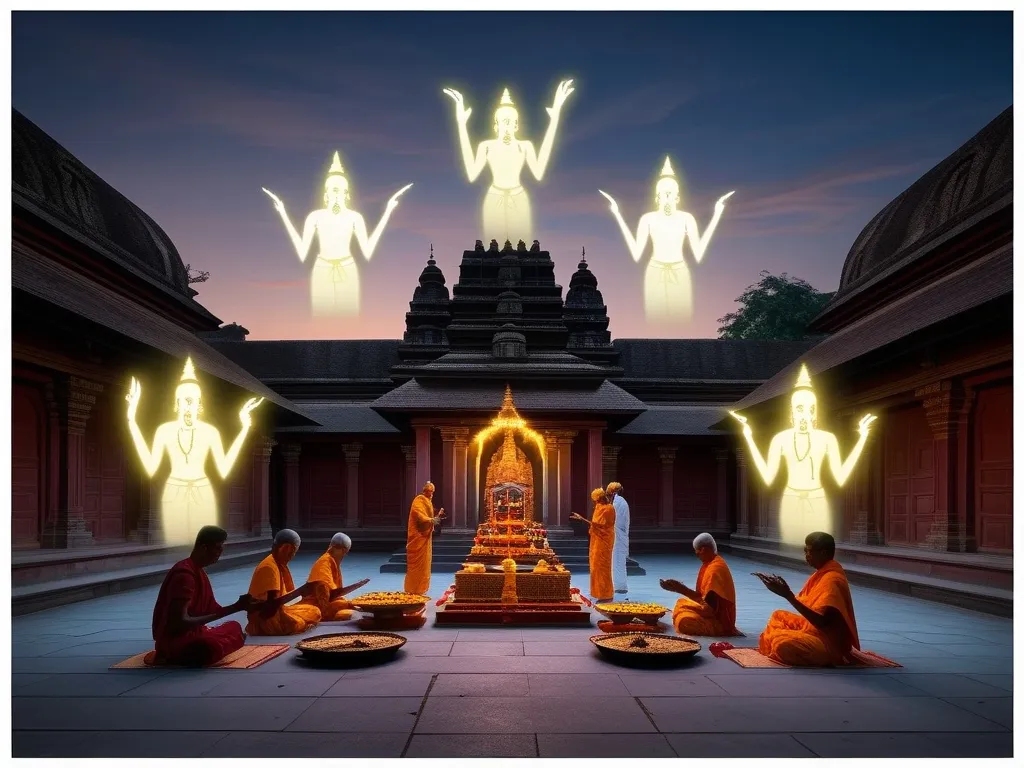Fasting, in the colorful and diverse world of Hinduism, is more than just skipping meals. It’s a powerful practice that connects the dots between physical, mental, and spiritual well-being. This ancient tradition, deeply rooted in the Vedic culture, is especially emphasized in the Yajur Veda, one of the four sacred Vedas. Let’s dig a little deeper into why fasting holds such a special place and what we can learn from these ancient texts.
The Real Deal with Fasting
So, what’s the big idea behind fasting in the Vedic world? It’s not simply about not eating; it’s really about mastering self-control. Let’s face it, food is one of life’s biggest temptations. Mastering the urge to chow down is viewed as a major step toward spiritual growth. According to the Yajur Veda, fasting is like an initiation ritual known as “Diksha.” This sets the stage for what they call “Dakshina,” where every action becomes successful, boosting faith and devotion while paving the way to fulfilling one’s life ambitions.
Different Flavors of Fasting
The Vedic scriptures talk about various types of fasting, each meant for different kinds of purification. For instance, there’s “Vachika” fasting, which aims to cleanse one’s speech. It’s about speaking the truth and avoiding gossip or harsh words. Then, there’s “Kayika” fasting, focusing on purifying the mind. This enhances one’s intellectual capabilities and fosters discipline and self-control. Finally, “Manasa” fasting targets the physical body, detoxifying it and creating a relaxed, stress-free digestive system.
Science and Spirit: A Win-Win
Fasting isn’t just some spiritual mumbo-jumbo; it’s got some solid scientific backing too. For starters, it helps in flushing out toxins from the body. Often, these toxins come from cereals and other foods we consume regularly. Getting rid of these makes you feel more lively and efficient, which in turn boosts the spiritual energy cultivated through prayers and devotion. On top of that, fasting can save energy, enhance health, and even increase longevity. And let’s not forget the emotional and spiritual benefits. Fasting nurtures self-confidence and harmony within oneself.
Cosmic Connections
In Vedic astrology, fasting gets an extra layer of meaning through its connection to planetary influences. Each day of the week is ruled by a different deity, and fasting on specific days can help counteract negative planetary forces. For example, fasting on certain days can invoke blessings from specific gods to help achieve life goals. Each day has its own set of rituals, prayers, and procedures, making the act of fasting a highly personalized and meaningful experience.
Fasting vs. Just Not Eating
It’s super important to understand the difference between fasting and just starving. Starvation is simply the absence of food and water, whereas fasting is a controlled, intentional act of self-restraint. The goal of fasting is to enhance one’s senses and foster spiritual growth, while starvation leads to physical and mental harm. The Vedic tradition emphasizes that fasting should be practiced with a clear understanding of its purpose and benefits.
Beyond Just Skipping Meals
Fasting in the Vedic sense often comes with additional rituals and practices. The Yajur Veda highlights the importance of meditation and yoga during fasting. It advises steering clear of negative thoughts and behaviors, focusing instead on positive energies for intellectual growth. Offering fruits, milk, and other pure foods to deities is commonplace, helping individuals attain a “Satwik” state of mind—a state marked by peace and creativity.
A Lifestyle, Not a Phase
Fasting isn’t just a ritualistic one-off; it’s more of a lifestyle. It teaches us to control our physical desires, which can help in mastering other passions like anger, lust, and pride. Through fasting, we grow more grateful, learning to appreciate the simple things in life, which leads to a deeper sense of contentment. This practice helps build patience and trust in a higher power, prepping individuals to receive divine grace and strength.
Coming Together as a Community
Fasting often ties into community and festival celebrations. Various fasts are observed during festivals and religious ceremonies in Hindu culture. These fasts not only purify individuals but also bring communities together, fostering a sense of unity and shared purpose. For example, entire communities may come together to fast, pray, and perform rituals during festivals, creating a collective spiritual energy.
Personal Growth on a Spiritual Level
The ultimate goal of fasting in the Vedic tradition is spiritual growth and awakening. By controlling the body and mind through fasting, individuals can reach a higher state of consciousness. This practice quiets the inner self, allowing for a clearer focus on one’s spiritual journey. It also builds the ability to endure suffering and be patient, which are crucial qualities for spiritual progress.
Wrapping It Up
Fasting, as portrayed in the Yajur Veda, is a multifaceted practice offering countless benefits for the body, mind, and spirit. It’s a route to self-purification, spiritual growth, and building community bonds. By understanding the depth and context of fasting in Vedic culture, individuals can take a path toward self-discovery and spiritual awakening. This leads to a more harmonious and fulfilling life. Whether it’s for controlling physical desires, growing in gratitude, or attaining divine grace, fasting remains an integral part of the Vedic tradition, guiding individuals toward achieving their highest potential.






